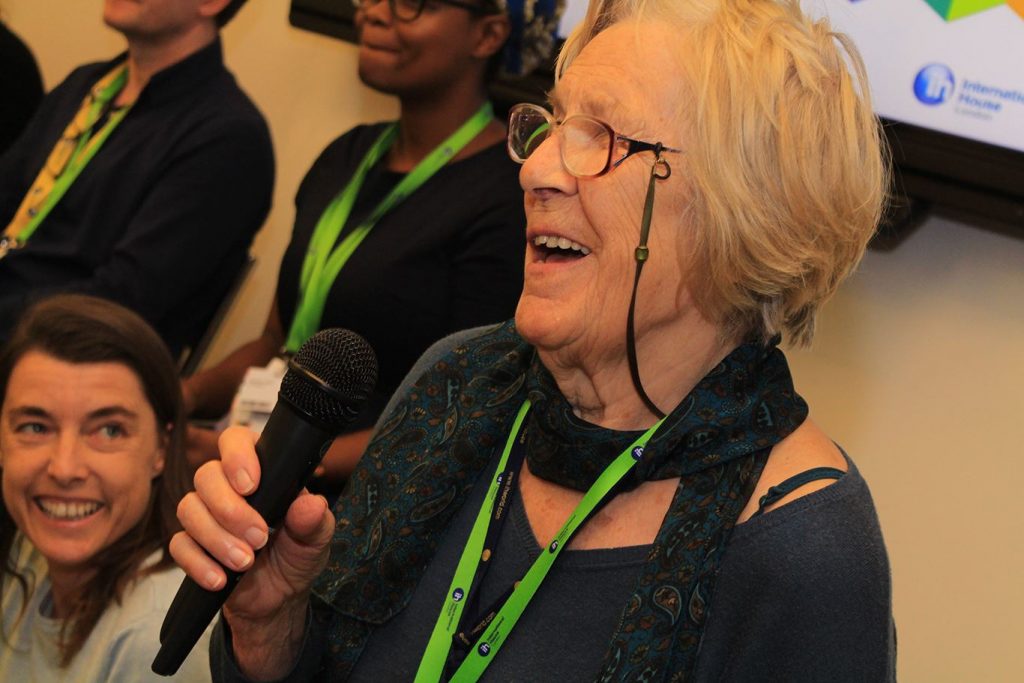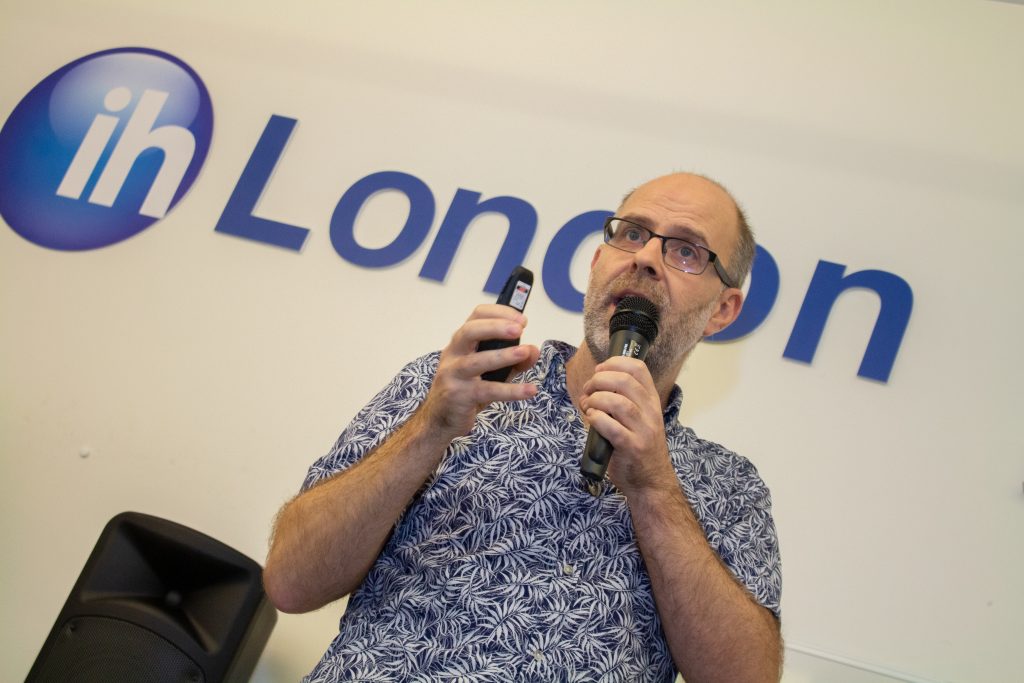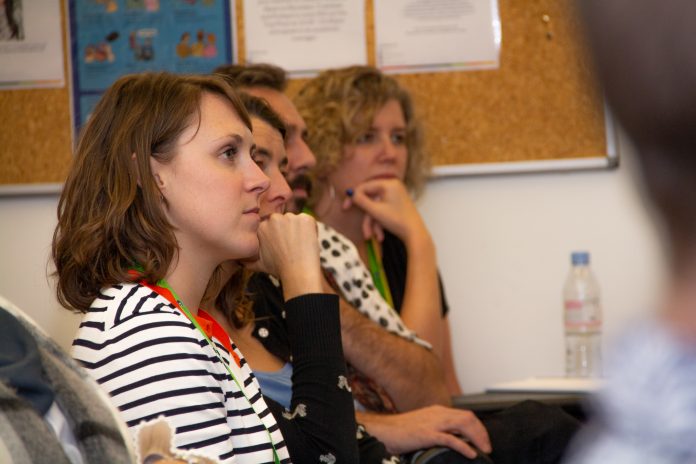The Audience at IH London’s Future of Training conference listening
WITH THE profile of the trainee and the contexts they work in changing dramatically, what is the future of training for English language teachers?
Opening the two-day London conference, Brita Haycraft, co-founder with her husband John of International House, remembered how the language school they had started quickly blossomed into a centre for teacher training.
‘Very soon we had to get an office just for the teacher training,’ she told the 150 teachers and trainers from Europe and beyond.
But what is the future of teacher training now: that was the question the two-day event set out to answer.
The four-week course, the standard entry qualification designed, originally, for native speaker graduates, has been around for decades. Teacher training at International House (IH) started 56 years ago, the Trinity Tesol certificate is 40 years old, the Cambridge Celta entry-level Tefl, which replaced the old RSA PrepCert, celebrates its thirtieth birthday this year.
But the people who are taking such courses, and the contexts they are teaching in, have changed beyond recognition. IH London’s assistant director of training Jess Andrews pointed out that fifty years ago virtually all the International House trainees were native speakers. This ‘has now dropped to around 50-60 per cent,’ she told the Gazette.
A similar opinion was expressed by Ben Beaumont, Tesol qualifications manager at Trinity College London. He noted that the four-week ‘model has served us well for many years’. Yet, while the ‘input has remained essentially the same’, the trainees’ ‘origins and destinations’ have ‘changed dramatically.’ Ben asked how the introductory certificate model could ‘be changed to reflect this.’
As a Celta assessor, Jess is always talking to other trainers about ‘what they are doing. They have quite a lot of flexibility afforded to them – you decide the timetable’ and have a lot of discretion on what the input is.
But are they meeting the needs of today’s trainees?
The opening session of the conference assembled a panel of teachers at various stages of their career to try and answer this question.
Olwethu Pissot – a teacher from South Africa who did an IH Celta as part of her MA Tesol at King’s College London, now gives online English instruction to young Syrian refugees. Her four-week course was not a perfect fit for her new teaching context. ‘Being in an online environment is completely different… How can you do pair work? How do you monitor students? How could you incorporate some online teacher training’ into Celta?
Another delegate, Erin Vickerman, who took the intensive Delta at IH, described its Module 3 as ‘the biggest box to tick in the land of box ticking exercises’. Of the Delta, she asked the audience ‘Which bits feel more like a box to tick than… a transformative experience? How would you redesign those parts?’
Recent Celta graduate Dale found himself teaching everything from writing classes to business English to Ielts prep courses. Given the varying contexts Celta trainees can expect to be thrown into ‘should we be perfecting their ability to flexible?’ he asked.

Brita Haycraft speaks at the opening of the Future of Training Conference
Celta and Delta trainer Iffy Jamil finds that one of the biggest tasks is to manage trainees’ stress. Iffy’s courses ‘seriously reduce input – down to 40 minutes,’ followed by answering trainees’ questions. He adds, ‘what I’m discovering (is that) less is more.’
The second day included plenaries by Danny Norrington-Davies and Gabriel Diaz Maggioli, as well as workshops and talks from well-known names.
The conference concluded with a closing panel featuring Adrian Underhill, Fiona Dunlop, Jason Anderson and Marie Willoughby, chaired by Gabriel Diaz Maggioli, which summarised their views of the conference overall and raised questions for delegates’ future consideration.
Throughout the conference, the question was: is the four-week course still fit for purpose and, if not, how can we adapt it the needs of today’s trainees and the contexts they work in?

Danny Norrington-Davies speaks at the opening plenary
Danny Norrington-Davies summed up the general feeling. ‘We aren’t going to reinvent the wheel,’ he said in his plenary session, ‘but we will see what we can do with the wheel.’
Jason White, IH London’s interim director of education, told the Gazette they ‘want to continue the discussion’. IH London is planning a series of follow-up evening events on teacher training, starting on 24 January with a presentation by Jacqueline Douglas on survey-inspired Celta innovation.




